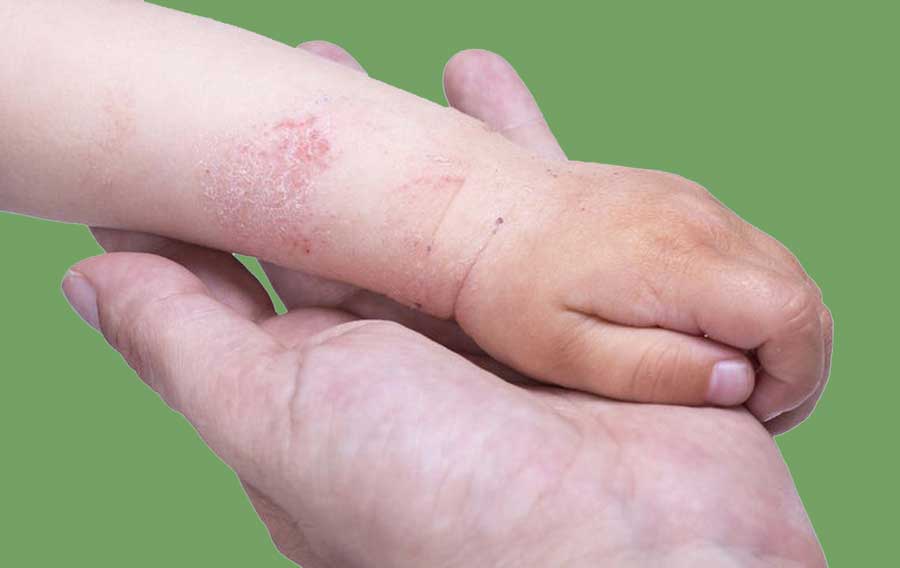Diarrhea is the condition in which the solid waste of your body is discharged in a liquid manner frequently throughout the day. It ranges from mild temporary conditions to a potentially life-threatening one. Let’s look at some of its causes:
Causes
Most often, diarrhea is caused by:
- Viruses such as Norovirus and rotavirus
- Bacteria such as campylobacter and Escherichia coli, which are present in contaminated foods.
- A parasite that causes giardiasis. It is generally present in contaminated water.
Generally, you contract these microorganisms while traveling to places with poor public hygiene. Apart from this, diarrhea can also be caused due to anxiety, food allergies, certain medications, and Irritable bowel syndrome(IBS).
How do you know that you have diarrhea? Let’s look at some of its symptoms:
Symptoms
Some common symptoms of this condition are:
- Loose and watery stools for more than 3 times a day
- Abdominal pain and cramps
- Unable to stop your bowel movements
- Pus, mucus, and blood in your stools
- Tiredness and weakness
- Vomiting
If you are an adult, then you will find the following symptoms:
- Lightheadedness
- Loss of appetite
- Dizziness
- Dry tongue
- Sunken eyes
- Muscle cramps
- Rapid heartbeat
If you have these symptoms, then it is obvious that you have contracted diarrhea. You need to get rid of it to lead a normal life. Let’s look at some of the home remedies for diarrhea by which you can cure it naturally.
Natural remedies
Drink enough water
Water helps in eliminating waste from your digestive system. As per the publication of the European Journal of Clinical Nutrition, dehydration is a common cause of constipation. It is important to drink enough water throughout the day. It also keeps your body hydrated enough to cope with fluid loss caused due to diarrhea.
You need to avoid alcohol, soda, milk, and other caffeinated and carbonated drinks, as it will worsen your condition.
Probiotics
While suffering from diarrhea, it is important to make your gut healthy. This can be achieved by populating your gut with good bacteria. Probiotics are live bacteria that are good ones present in certain foods such as aged soft cheeses, beet kvass, cottage cheese, dark chocolate, green olives, kefir, kimchi, kombucha, sauerkraut, miso, natto, pickles, sourdough bread, tempeh, and yogurt.
Good bacteria helps in maintaining good intestinal health by eliminating harmful bacteria that cause infections. Making a balance of more numbers of good bacteria with respect to the fewer numbers of harmful bacteria is vital for good gut health.
Maintain a food diary
Maintaining an everyday diary to keep track of what foods and drinks you consume help in tracking the primary source of diarrhea. This helps in making healthy food choices by eliminating the ones which pose a threat of developing diarrhea.
Limit spicy foods
Spicy foods also contribute to making your stomach upset. Extremely hot foods such as chilies cause heartburn and other types of digestive distress. Apart from that, certain mild foods(garlic and onion) can also cause some digestive issues. Avoid such foods if you are facing upset stomach problems.
Along with all this, you also need to avoid high fiber foods and fried foods.
Reduce acidic food intake
Acidic foods can cause heartburn, indigestion, and irritable bowel syndrome(IBS). Certain acidic foods are tomatoes, grains, sugar, dairy products, fish, processed foods, processed meats such as corned beef and turkey, sodas, sweetened beverages, high-protein foods, and supplements.
Certain fruits that are highly acidic are lemon juice, blue plums, grapes, pomegranates, grapefruit, blueberries, pineapples, apples, peaches, and oranges.
Certain foods are not considered acidic. Such foods are sauerkraut, cabbage, beets, corn, mushrooms, broccoli, and collard greens.
You must consume some alkalizing or neutral foods such as miso, soybeans, tofu, tempeh, unsweetened yogurt and milk, fresh vegetables, potatoes, herbs and spices, beans, lentils, whole grains, such as millet, quinoa, and amaranth, herbal teas, and fats like olive oil, avocados, nuts, and seeds.
Healthy weight
Indigestion, acid reflux, and bloating can also be caused due to excessive weight. An unhealthy weight puts pressure on your stomach and causes stomach acids to move into your esophagus. Exercise regularly to maintain a healthy weight. It also helps in maintaining proper digestion.
Avoid smoking
Along with being one of the reasons to cause certain types of cancer, smoking also causes certain digestive issues. Nicotine content of your smoke promotes more stomach acid production, which increases the risk of heartburn, stomach ulcers, and GERD. It also poses a risk of developing colon polyps, Crohn’s diseases, and pancreatitis.
When to visit your doctor?
You need to visit your doctor in case of the following symptoms:
- If your stool contains blood or mucus
- Severe diarrhea, in other words, several bowel movements per day
- Severe abdominal pain with high fever
In the case of children, if the symptoms don’t go away within 24 hours, then it is a case of a medical emergency.
Author Bio:
Jennifer is a wellness lifestyle writer. She loves sharing her thoughts and personal experiences related to natural remedies, Ayurvedic, yoga and fitness through her writing. She currently writes for How To Cure. She can connect with others experiencing health concerns and help them through their recovery journeys through natural remedies.











